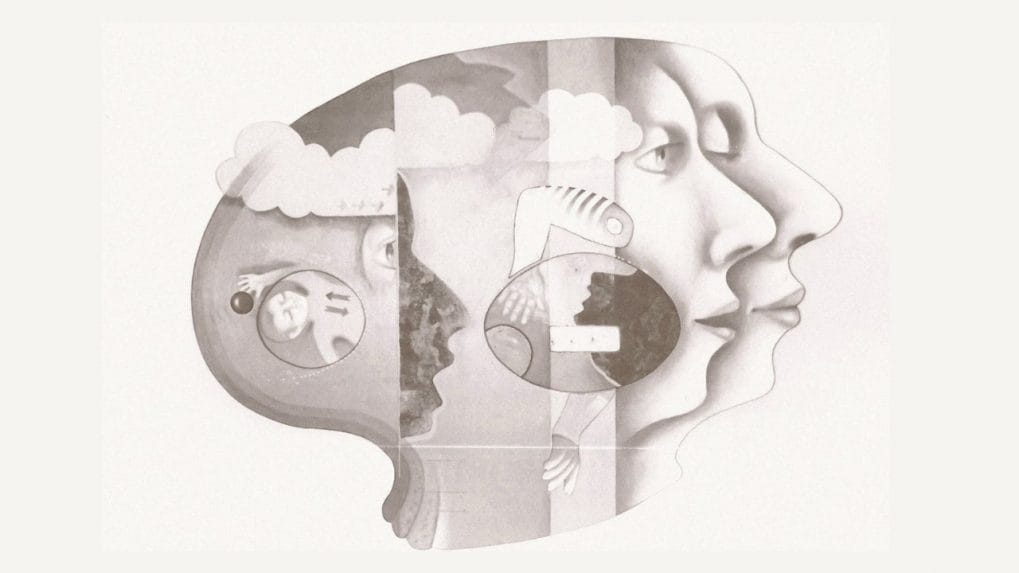Advertising
From Pink Slips to Silent Sidelining: Inside adland’s layoff and anxiety crisis

A new era of advertising is here— and it’s one where the director is an algorithm, the art director is a prompt, and the celebrity might not even be human. In India, brands are pushing the boundaries of creativity and cost-efficiency by launching AI-led campaigns that are conceived, created, and executed almost entirely by machines.
What began as experimentation has quickly turned into execution. Companies across sectors, from FMCG to beverages and entertainment, are adopting AI tools to shrink production timelines, cut costs by as much as 85%, and unlock storytelling formats that were previously impossible.
“For Mondelez India, AI isn’t just about saving money—it’s about enabling what wasn’t previously possible,” said Nitin Saini, VP-Marketing at Mondelez India. Their Valentine’s Day campaign for Cadbury Silk used generative AI to convert consumer-submitted moments into over 500,000 unique animated videos. “Traditional production methods simply can’t achieve this scale or speed,” he said.
Saini also stressed that AI must operate within brand safety parameters, ensuring voice consistency and legal compliance. “The human touch is still central,” he added, echoing a growing consensus that AI is a creative multiplier—not a replacement.
No campaign has perhaps illustrated this shift more vividly than Emami’s “DermiCool Warriors” ad film—a sci-fi-inspired, AI-visual-generated ad reimagining the classic jingle.
Created using MidJourney, Kling AI, Suno AI, and Adobe Suite, the film was executed by just eight people, compared to the 100–150 professionals typically needed for such a production.
“This AI-driven campaign cost us just 15–20% of what a similar CG-heavy film would have,” said Kaushik Vedula, AVP – Marketing, Emami Limited. “That’s an 80–85% reduction in production costs, with comparable quality and significantly more agility.”
Brands across sectors, from FMCG to beverages and entertainment, are adopting AI tools to shrink production timelines, cut costs by and unlock storytelling formats that were previously impossible.
For Vedula, the shift wasn’t just financial. “We wanted to tell a story that resonates with a specific digital audience. Gen AI helped bring that vision to life with fewer resources and more precision.”
Rapid Turnaround, Personalized Scale
Carol Goyal, Managing Director at Aesthetic Intelligence Lab, highlighted the use of AI across full campaign pipelines. For Tata Gluco+, her team used Runway ML, Leonardo.ai, and ElevenLabs to reduce campaign turnaround time by over 70%, delivering regional variants within a week.
Goyal estimates that AI-led campaigns can reduce costs from ₹50–60 lakhs to ₹8–12 lakhs, depending on scale and scope. However, she noted that these savings often redistribute costs to areas like prompt engineering, voice licensing, GPU compute time, and human QA.
“Once trained, AI workflows offer compounding returns. You can iterate faster, localize better, and scale without bottlenecks,” she said, citing their Wipro Consumer campaign that was delivered 5x faster at a fifth of the cost.
Aniket Sakpal, head of operations, Agency09 shared that the agency's recent Father’s Day film for Siyaram was scripted, visualized, and produced using AI. "You save on manpower, locations, and timelines. But you're also shifting the skill set—less shooting, more prompting. You might save 30–40%, but it’s not plug-and-play. You still need taste, judgment, and someone to steer it right."
AI Celebs and Fully Virtual Campaigns
Agencies are also experimenting with AI-generated celebrities and assets. Harikrishnan Pillai, CEO of TheSmallBigIdea, shared how his team pioneered AI movie posters for Merry Christmas using MidJourney—long before AI became standard in creative rooms.
“We now use stacks like ChatGPT, KlingAI, and Runway ML,” said Pillai. “There’s no DOP, no art director—just you, your vision, and discipline. AI demands ownership, not delegation.”
However, Pillai cautioned against romanticizing the tech. “AI is cost-effective if you’re not using celebrities or physical locations. But it’s not always cheaper—and rarely precise. You’re often one prompt away from accidentally mimicking a global campaign or infringing on someone’s IP.”
Ethical, Legal, and Creative Hurdles
Despite the promise, marketers and creators agree that AI’s growing presence raises difficult questions:
Brand Safety & Voice Consistency: With machines generating tone and style, the risk of deviating from brand language is high—especially for legacy brands not speaking to Gen Z.
IP and Copyright Risks: Models trained on internet-scale data can inadvertently lift protected material. Vedula and Goyal both underscored the importance of licensed, responsible AI use.
Consumer Trust: With AI deepfakes and avatars on the rise, brands must ensure transparency and disclosures to maintain credibility.
Loss of Creative Texture: “When prompts start defining brand voice, you risk losing its soul,” said Pillai.
Still, the consensus is clear: brands that experiment with AI today will be better prepared for the creative economy of tomorrow.
“AI is not a gimmick—it’s a strategic asset,” said Goyal. “Those who embrace it early will build custom workflows, own their own AI voice models and digital twins, and dramatically cut time-to-market.”
Vedula agrees. “It’s not about cost alone. It’s about story-first thinking. AI is just the best way to serve that story—when used responsibly.”
And as Vishnu Srivatsav, National Creative Head at 22feet Tribal Worldwide, put it, “AI is still just a tool. It’s the absurdist, human stories—like Italian Brain Rot—that win hearts. We just need the right minds behind the machine.”
As AI shifts from buzzword to backbone, experts highlight how India’s brands are racing to master its potential—not just to cut costs, but to redefine what creativity looks like in the machine age.
From purpose-driven work and narrative-rich brand films to AI-enabled ideas and creator-led collaborations, the awards reflect the full spectrum of modern creativity.
Read MoreLooking ahead to the close of 2025 and into 2026, Sorrell sees technology platforms as the clear winners. He described them as “nation states in their own right”, with market capitalisations that exceed the GDPs of many countries.